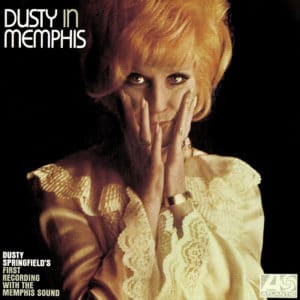Marketplace
2011 Analogue Productions PRESSING
- Catalog Number APP 8214-45
- Release Year 2011
- Vinyl Mastering Engineer Kevin Gray
- Pressing Weight 200g
- # of Disks 2
- Jacket Style Single
- 100% Analog Mastering Yes
When listening to this album I think of this band or music:
It’s hard to not think of Aretha Franklin—the star of Atlantic Records when Dusty Springfield signed to the label. “Son of a Preacher Man” was written for Franklin and passed on to Springfield.
I would listen to this album while:
Remembering the days when high-school girls wore bleached-blonde bouffant hairdos and panda-eye mascara after Springfield’s style, unsuspecting of the underlying current that would later make the approach a favorite of drag queens.
Music from this album would be a great soundtrack to this movie:
I always thought Dave Grusin’s soundtrack the weak link in The Friends of Eddie Coyle. Slip in a little Springfield to improve the story of sleazy cops and informants, and Robert Mitchum trying to turn his life around.
Someone new to this record might not get the joke of its “aw shucks” cover. Fail to take it seriously at your own risk. Dusty in Memphis was, and remains, one of the great albums of the classic-rock era. Dusty Springfield was keeping up with the fast-moving times of 1968—she had a string of hits in the U.K. and U.S. unrivaled by any other female singer—but songs like “You Don’t Own Me” sounded old-fashioned by the late 60s. She signed with Atlantic Records, one of the hippest labels of the day, and headed for Memphis and the American Sound Studios to record her first all-R&B album.
There, Springfield micro-managed Atlantic’s Jerry Wexler in the studio regarding the choice of material and takes. During the recording sessions, she found time to recommend Atlantic sign a new band called Led Zeppelin. Her advice to Atlantic made the label wealthy, but her new LP proved a bit of a commercial fizzle and did not have the hoped-for impact on her career. However, it became a critical success and, years after its 1969 release, was rediscovered and elevated to iconic status, finding its way onto most every meaningful list of the era’s great rock LPs.
Every cut is impactful—from “Son of a Preacher Man” to “Just a Little Lovin’”—and the album filled with compositions from songwriting royalty, including Randy Newman and Gerry Goffin and Carole King. Dusty in Memphis has been sampled, copied, and given tribute countless times. Even its sound remains unique—the big, fat, lush sonics designed to worm their way into your self-conscious.
While Dusty in Memphis stands as Springfield’s masterpiece, her audiophile calling card became the song “The Look of Love” from the 1967 Casino Royale film score. Dusty in Memphis never struck anyone as audiophile fare—well recorded but not demonstration quality. The original LP shows music distributed left, right, and center, with little fill between the three areas and not much depth. But it’s a whole lot better than most of the era’s rock recordings and possesses enough dynamic range to shame 95% of 21st century releases.
Analogue Productions’ reissue functions as a case study in what careful remastering and good pressing can achieve—even if the single-jacket package means both 45RPM LPs get crammed into one space. Sonically, it doesn’t entirely erase the lack of fill, but adds such a three-dimensional frame to the picture that the holes begin to disappear. Additionally, it creates a much larger soundstage than found on the original, and the improved pitch stability makes it seem you’ve acquired a better turntable—not just a better pressing. It’s not as spectacular sounding as Shelby Lynne’s tribute album, Just a Little Lovin’, but the performances remain unparalleled.
Dusty In Memphis


 4.5
4.5